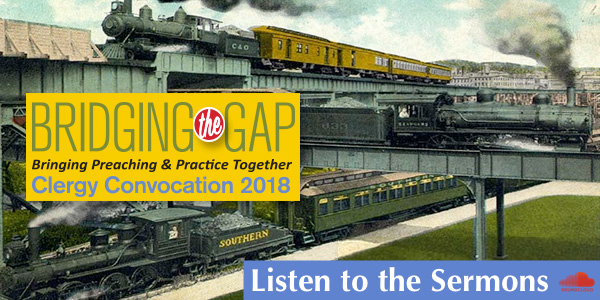A good bad example
Richmond Hill | 19 September 2016
XVIII Pentecost | Luke 16:1-13
I love the story of the dishonest manager. Jesus must have driven his pious listeners crazy. Here he was taking a clearly dishonest person and complimenting him, — using his behavior as an example of the behavior which they should emulate. Jesus uses an adverse comparison – the native survival instinct of a dishonest steward is somehow an illustration of the behavior which disciples – “children of light” — should follow.
It’s a tricky story. But in the conversation – in the challenge – I wonder if Jesus is not able to say things he could not say any other way:
- The opposite of dishonest, oppressive behavior is not inactivity.
- True relationship and economic relationship may not be the same thing.
- You have to choose.
-
The opposite of dishonest, oppressive behavior is not inactivity.
God’s businessmen and businesswomen are meant to be sharp and convincing. The only difference here is whose business you’re in.
The steward was supposed to be in the business of his employer, but he was not doing a very good job. When it became apparent to him that he was going to be fired, he started using his employer’s money to buy friendship from some of his employer’s clients. It sounds an awful lot like a congressman who, before getting voted out of office, makes sure that he gets one last piece of special interest legislation for the various corporations and lobbyists who have been paying to keep him in office, so he can have a job when he gets out. We are familiar – too familiar — with this kind of behavior.
But Jesus is telling us to examine this behavior more carefully. The dishonest steward is engaged in a personal effort which affects his entire future. He is fighting for his own survival. As a person engaged in that kind of effort, he is using every resource he has, and scheming as hard as he can, to achieve the goal.
Most of Jesus’ disciples would assume, I guess, that simply not being a dishonest steward is enough. Not cheating, not lying, not stealing – this is the path of discipleship.
Jesus, on the other hand, admires the dishonest steward – not for his dishonesty, but for his dedication to the task, for his innovation, for his not being willing to give up: “The children of this age are more shrewd in dealing with their own people than the children of light are,” Jesus says.
During the past year, once or twice a week, I have sat with individuals and groups of people who are asking what they can do to make a difference in the public transportation system of metropolitan Richmond. It seems easy to say yes, it’s a good idea, and to believe really it will never happen. And this parable of the dishonest steward comes to my mind. What would the dishonest steward do? If it were about his survival, what would the dishonest steward do? Would he do nothing, allowing himself simply to be fired and be impoverished, in the street?
What does the dishonest steward have that we don’t have? Determination, unwillingness to quit, innovation, — what Jesus calls “shrewdness.” He is using his head, until he is successful.
I am aware that anywhere from ten to 200 young men and persons getting out of jail or prison in Richmond this year will give up on themselves because they can’t get a bus to a place of work – 9 out of ten jobs in metropolitan Richmond are not available on a bus line. I am aware that the leaders of the metropolitan community will say that they cannot afford public transportation, even though every other one of the world’s top 500 cities can afford it. I am aware that they will say it has nothing to do with racial segregation, even though I know it does. Even a dishonest steward knows that.
The children of this age are more shrewd in dealing with their own people than the children of light are. The opposite of dishonest, oppressive behavior is not inactivity.
-
True relationship and economic relationship may not be the same thing.
I’ve been wondering why Jesus chose this particular example of a shrewd, dishonest man to make his point about the children of this age and the children of light. Why did he choose this example of a man who bought dishonest relationship to replace his broken honest relationship?
I’m thinking relationship is an essential clue to what it means to be children of light. There is true relationship, and there is bought relationship. That is to say, there is relationship that grows through mutual respect, knowledge, affection, forgiveness – the bonds of love which are the core of the Holy Spirit’s work in this world. And there is commercial relationship, relationship of mutual interest, relationship of convenience, economic relationship.
We all are in both of these all the time. But I believe Jesus is raising the question of which one is essential to the children of light. How would you like to be the dishonest steward depending on the people you made dishonest deals with after you lose his job? Who is going to trust whom in these relationships? Now that he has lost the relationship with a master which included both personal trust and economic profit, how is that dishonest steward going to find trust again?
One rabbi, commenting on Jesus’ story, appears to have drawn this lesson directly: “Make friends for yourselves by means of dishonest wealth,” he says, “so that when it is gone, they may welcome you into the eternal homes.” Exactly what kind of eternal home might you hope to make with those persons who cheated the master with you? What would those persons be like? How would they treat you, once your money is gone?
America is a nation based on a powerful vision that every human being is important, regardless of race, creed, national origin – or any other distinction you might make. That belief, alone among all the founding beliefs of this nation; that belief, even though we have made a lie of it from the beginning; that belief is the most powerful divine foundation of this nation – a Holy Spirit work, a true Christian position, far more Christian than the establishment of Christian religion would be.
Working from that fundamental respect to a greater fairness, mutuality, and common wealth, — that is the great task which our foreparents set for us.
But there is the other set of values, which torment us and tear us apart in modern America. No loyalty of employer to employee, a belief that extreme wealth and no taxes is a legitimate position for persons in power, indifference to de facto segregation by race and income more egregious than the legalized segregation of the past, — these values are treating people like objects of economic relationship, where dishonesty would be natural if it served one’s purposes.
The children of this age are more shrewd in dealing with their own people than the children of light are. The opposite of dishonest, oppressive behavior is not inactivity. It should be clear that true relationship and economic relationship may not be the same thing.
-
You have to choose.
You cannot serve God and Mammon.
Mammon is an Aramaic word meaning material wealth. It has come to mean material wealth for its own sake — not just “dishonest wealth.” It is wealth pursued for its own sake – as a spirit, as an addiction, as a goal, as a converting power.
You have to choose, Jesus says. Where have you seen, where can you see, the God/Mammon split in your own life? It isn’t simply a renunciation of power. There is no condemnation of power here in this story. In fact, Jesus asks why the children of light seem to have renounced the power of activity and innovation along with their renunciation of unjust gain.
But no one can serve two masters, and there is a choice between God and Mammon. I have had an occasion several times to employ people who have worked for me and for another job. I have employed people who have split their times between two different contexts. I can tell you this experience is accurate. In my experience, it is virtually impossible for two employers and two environments to have the same loyalty from an employee, no matter how good the employee is.
No one can serve two masters.
When it comes to God and Mammon, Jesus says the division is absolute. Sooner or later, — maybe both sooner and later, you have to choose. You have to choose between comfort and risk, between security and challenge, between passivity and action, between truth and falsehood, between bitterness and forgiveness, between the wealth of God and his people, and the wealth of this world.
I can’t tell you how your choices appear, but can say this: The children of this age are more shrewd in dealing with their own people than the children of light are. The opposite of dishonest, oppressive behavior is not inactivity. True relationship and economic relationship may not be the same thing. And I can tell you that you have to choose: you cannot serve God and Mammon.
Amen.
The Rev. B. P. Campbell
Richmond Hill
Richmond, Virginia


